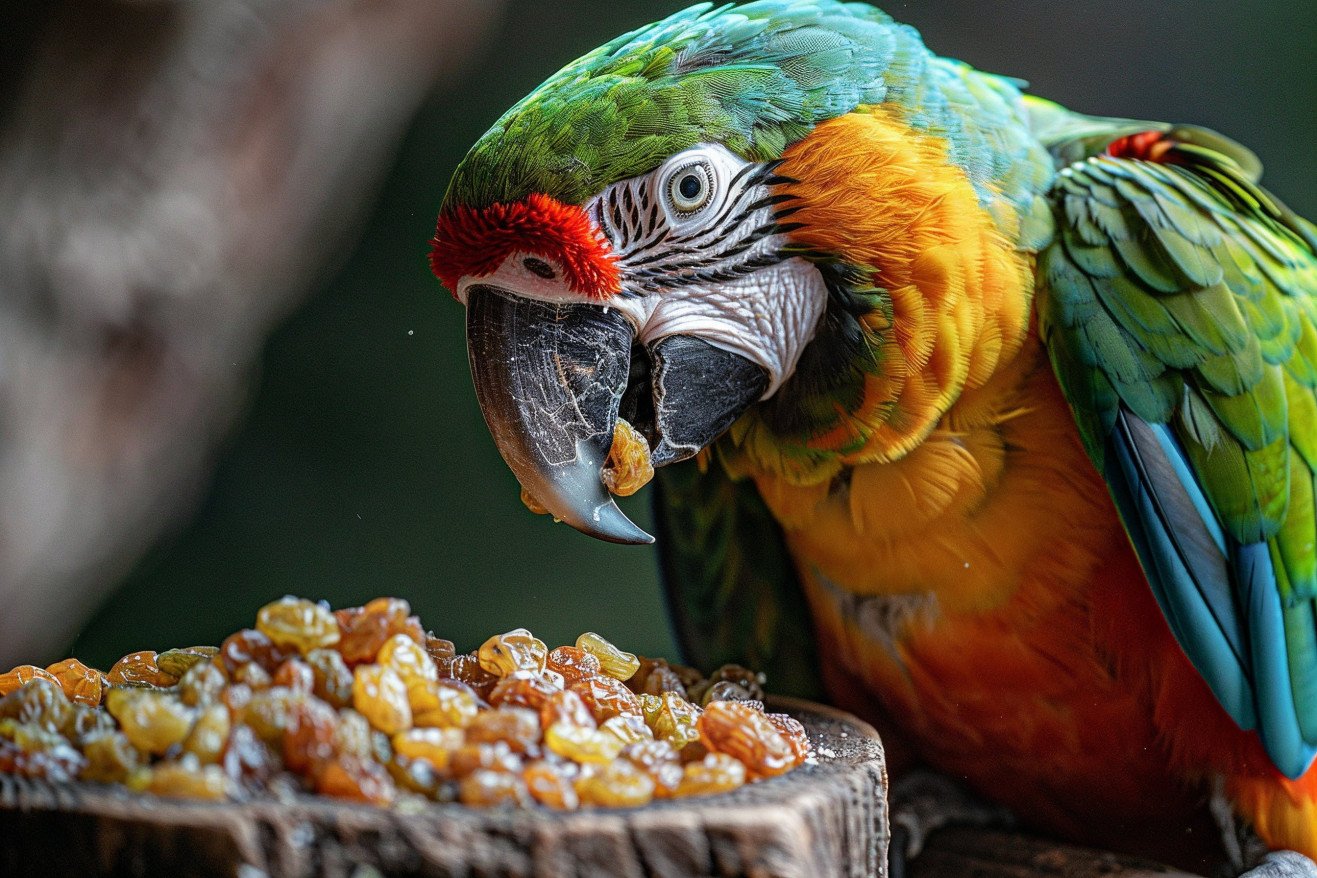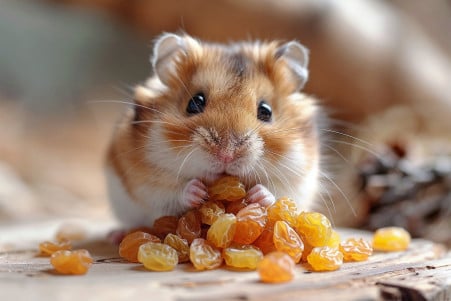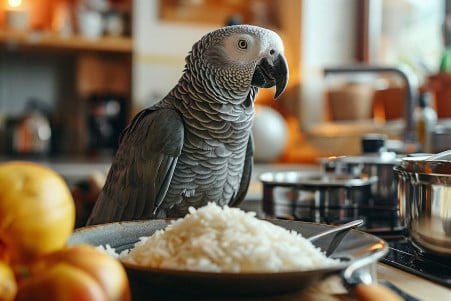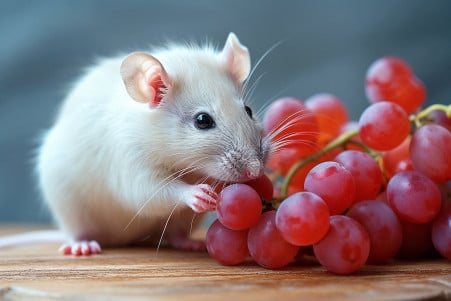Can Birds Have Raisins? The Good and Bad
18 May 2024 • Updated 17 May 2024

While raisins may sound like a delicious snack for birds, there are several reasons why you might want to think twice before offering them to your feathered friends. In fact, many bird enthusiasts recommend against feeding raisins to birds. Not only are raisins high in sugar, which can lead to weight gain and other health problems, but their small size can also make them a choking hazard, especially for smaller birds.
Yet, the science is a bit more complicated when it comes to whether raisins can be a friend or foe to birds. In this article, we'll take a look at research from veterinary science, avian nutrition, and bird behavior experts to find out if there are any potential benefits to feeding birds raisins and if there are any risks. Once you know the full story, you'll be better equipped to decide if you want to occasionally offer your avian friends this sweet and chewy treat.
Can birds eat raisins?
Nutritional Information and Benefits of Raisins for Birds
Raisins are a nutritional powerhouse and can be a healthy addition to a bird’s diet. As noted by Bird Tipper, raisins are high in natural sugars that can provide a quick source of energy, which can be especially important during the winter or migration when other food sources may be scarce. They also contain important vitamins, minerals, and fiber, which can be beneficial when eaten in moderation.
Some birds are especially attracted to this dried fruit. Thrushes, robins, and starlings are all known to eat raisins as part of their diet. Even woodpeckers and warblers have been known to be attracted to feeders that offer raisins, according to the same article.
While raisins can be a good addition to a bird’s diet, it’s important to remember that they should not be the only thing a bird eats. As Meandering Wild points out, while raisins are healthy, they should be considered a treat and not the sole source of food for birds, who need a variety of foods to meet all of their nutritional needs.
To help birds digest raisins more easily, soaking or boiling them before putting them out can help soften them, which can be especially important in the winter when birds need to get more of their water from their food. This can help ensure that birds can get the most out of this nutritious treat.
Potential Dangers and Risks of Giving Birds Raisins
Although raisins can be a healthy snack for birds, their high sugar content can lead to weight gain and other health problems if they are eaten in excess. Kennedy Wild Bird Food notes that raisins should be given in moderation because too many can lead to a bird filling up on them and not getting the other nutrients they need from their diet.
Raisins' small size also makes them a potential choking hazard, especially for smaller birds. Some bird species and animals should not eat raisins because they can be harmful. Birds of prey, such as owls and falcons, are obligate carnivores and their diet does not include fruit.
It's important to make sure that any raisins you give to birds are free of additives, preservatives, and other things that could be harmful, such as chocolate. ZuPreem warns that even small amounts of chocolate can cause vomiting, diarrhea, and potentially fatal heart problems in birds. Owners should also watch for signs of food allergies when they introduce new foods like raisins to their birds.
Offering Raisins as a Supplemental Food for Wild Birds
Raisins can be used to supplement the diet of wild birds, especially during the winter months when natural food sources are limited. You Do It Suet® notes that robins, waxwings, mockingbirds, and bluebirds are all attracted to raisins, and a few tablespoons of raisins in suet cakes or homemade bird food can be a good way to give these birds and other fruit-eating species a healthy treat.
For the best results, You Do It Suet® suggests soaking the raisins in water for 24 hours and then placing them on a flat feeder to make them easier for the birds to eat and digest. This can help you attract these fruit-eating birds to your yard. Audubon also notes that offering soaked raisins and currants is a good way to attract berry-eating birds like robins, waxwings, bluebirds, and mockingbirds.
While raisins can be a good supplemental food, Meandering Wild warns that they should be used in moderation and as part of a balanced diet rather than being the only food offered to birds. It's also important to keep an eye on the feeders and remove any raisins that haven't been eaten or have gone bad to ensure the birds are in a safe and healthy environment.
Bird Species and Habitat
Some bird species, like frugivores, might be more likely to eat raisins and other dried fruits in the wild. Perkypet's guide to feeding birds fruit explains that birds that eat fruit are frugivores and often swallow small fruits whole, with the seeds they excrete growing into new plants that will produce more fruit in the future.
Birds in different habitats and climates may have different access to natural food sources, which can impact the need for supplemental food like raisins. As the RSPB Community points out, raisins and sultanas can be a helpful food source, especially in the winter when natural food is scarce.
Raisins may be more attractive to birds at certain times of the year, like during migration or breeding seasons when their energy needs are higher. The RSPB Community also explains that the size and texture of raisins may make them more suitable for certain birds based on the shape of their beaks and their feeding behaviors.
Local bird experts or organizations can offer insight into whether or not raisins are a good food to offer to specific birds in a specific location. This can help bird lovers understand the needs and preferences of the birds in their area so they can decide if they want to offer raisins in their backyard bird feeders.
Conclusion: Finding the Right Balance When Feeding Birds Raisins
Raisins can be a healthy and fun treat for many birds, but they should be fed in moderation and as part of a balanced diet. As mentioned by Homes & Gardens, raisins, sultanas, and currants are all safe for birds to eat, but it's best to soak them, especially during dry periods.
Really Wild Bird Food explains that birds like blackbirds and song thrushes love raisins and that they are most effective when fed on the ground. Soaking raisins during the breeding season can also help adult birds provide their chicks with the water they need.
That said, Sahara Foods UK warns that raisins need to be prepared properly by soaking them to make sure they are soft and that they should be fed in moderation as part of a balanced diet. While robins, thrushes, blackbirds, and starlings are all known to enjoy eating raisins, it's important to watch for signs of allergies when introducing new foods.
By finding a balance and making well-informed choices, bird lovers can make sure that they are responsibly feeding birds raisins in their backyard bird-feeding setups.


